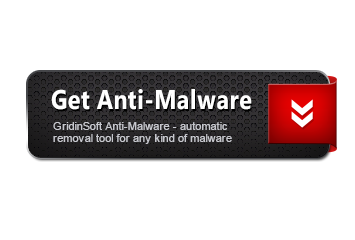The MemScan:Trojan.Ransom.Cerber.QE is considered dangerous by lots of security experts. When this infection is active, you may notice unwanted processes in Task Manager list. In this case, it is adviced to scan your computer with GridinSoft Anti-Malware.

Gridinsoft Anti-Malware
Removing PC viruses manually may take hours and may damage your PC in the process. We recommend using GridinSoft Anti-Malware for virus removal. Allows to complete scan and cure your PC during the trial period.
What MemScan:Trojan.Ransom.Cerber.QE virus can do?
- Executable code extraction
- Injection (inter-process)
- Injection (Process Hollowing)
- Attempts to connect to a dead IP:Port (1 unique times)
- Creates RWX memory
- A process attempted to delay the analysis task.
- Reads data out of its own binary image
- A process created a hidden window
- Creates an excessive number of UDP connection attempts to external IP addresses
- Performs some HTTP requests
- The binary likely contains encrypted or compressed data.
- Uses Windows utilities for basic functionality
- Executed a process and injected code into it, probably while unpacking
- Attempts to modify desktop wallpaper
- Deletes its original binary from disk
- Exhibits behavior characteristic of Cerber ransomware
- Attempts to execute a binary from a dead or sinkholed URL
- Writes a potential ransom message to disk
- EternalBlue behavior
- Attempts to modify proxy settings
- Attempts to access Bitcoin/ALTCoin wallets
- Generates some ICMP traffic
- Collects information to fingerprint the system
- Anomalous binary characteristics
- Uses suspicious command line tools or Windows utilities
Related domains:
api.blockcypher.com |
hjhqmbxyinislkkt.1j9r76.top |
How to determine MemScan:Trojan.Ransom.Cerber.QE?
File Info:
crc32: 0AD94C4Dmd5: 769eb43e59c3f19dc15da6c6a1746e60name: 769EB43E59C3F19DC15DA6C6A1746E60.mlwsha1: ab9c61cbd632ffeb88d9d8aa125c32869fd2750esha256: aff9a1f020a797e32d314728fa8ffb8c464681125a99300e6d4b1e41b477200esha512: 5e4ecc35e303a6c2ce3cf965da1f5bc96f77b748dfd1e30ad5db58df69ba58e89217b1707e7af64312f96366d07fba3d9e2cf8f16486cdcf854372c982e5e003ssdeep: 6144:7D6xtFPCroUrWOtV65OtnhUm865JBjq7lU/8xSxSpxN:7+xtFCEpOSm8RUVxShtype: PE32 executable (GUI) Intel 80386, for MS Windows, PECompact2 compressedVersion Info:
0: [No Data]
MemScan:Trojan.Ransom.Cerber.QE also known as:
| Bkav | W32.AIDetect.malware1 |
| K7AntiVirus | Trojan ( 0050b2ab1 ) |
| Lionic | Trojan.Win32.Generic.4!c |
| Elastic | malicious (high confidence) |
| DrWeb | Trojan.PWS.Siggen2.41378 |
| Cynet | Malicious (score: 100) |
| CAT-QuickHeal | Ransom.Crysis.A4 |
| ALYac | MemScan:Trojan.Ransom.Cerber.QE |
| Cylance | Unsafe |
| Zillya | Trojan.Filecoder.Win32.5112 |
| Sangfor | Suspicious.Win32.Save.a |
| CrowdStrike | win/malicious_confidence_90% (D) |
| K7GW | Trojan ( 0050b2ab1 ) |
| Cybereason | malicious.e59c3f |
| Cyren | W32/Cerber.BB.gen!Eldorado |
| Symantec | ML.Attribute.HighConfidence |
| ESET-NOD32 | a variant of Win32/Injector.DNSX |
| APEX | Malicious |
| Avast | Win32:Malware-gen |
| ClamAV | Win.Ransomware.Cerber-7532984-1 |
| Kaspersky | HEUR:Trojan.Win32.Generic |
| BitDefender | MemScan:Trojan.Ransom.Cerber.QE |
| NANO-Antivirus | Trojan.Win32.Zerber.enrfrg |
| MicroWorld-eScan | MemScan:Trojan.Ransom.Cerber.QE |
| Tencent | Malware.Win32.Gencirc.10bc0196 |
| Ad-Aware | MemScan:Trojan.Ransom.Cerber.QE |
| Sophos | ML/PE-A + Mal/Cerber-AB |
| Comodo | Malware@#2yr5r1wjay4qt |
| BitDefenderTheta | AI:Packer.C81F9BE71F |
| VIPRE | Trojan.Win32.Generic!BT |
| TrendMicro | RANSOM_CRYPCERBER_GE01003C.UVPM |
| McAfee-GW-Edition | BehavesLike.Win32.Corrupt.fc |
| FireEye | Generic.mg.769eb43e59c3f19d |
| Emsisoft | MemScan:Trojan.Ransom.Cerber.QE (B) |
| SentinelOne | Static AI – Malicious PE |
| Jiangmin | Trojan.Zerber.blk |
| Avira | HEUR/AGEN.1120738 |
| eGambit | Unsafe.AI_Score_99% |
| Antiy-AVL | Trojan/Generic.ASMalwS.1F55837 |
| Microsoft | Ransom:Win32/Cerber.J |
| ZoneAlarm | HEUR:Trojan.Win32.Generic |
| GData | MemScan:Trojan.Ransom.Cerber.QE |
| AhnLab-V3 | Trojan/Win32.Cerber.C1909539 |
| McAfee | Ransomware-FLWW!769EB43E59C3 |
| MAX | malware (ai score=87) |
| VBA32 | Hoax.Zerber |
| Panda | Trj/GdSda.A |
| TrendMicro-HouseCall | RANSOM_CRYPCERBER_GE01003C.UVPM |
| Ikarus | Trojan.Win32.Injector |
| MaxSecure | Trojan.Malware.300983.susgen |
| Fortinet | W32/Generic.AC.3EE845 |
| AVG | Win32:Malware-gen |
| Paloalto | generic.ml |
How to remove MemScan:Trojan.Ransom.Cerber.QE?
- Download and install GridinSoft Anti-Malware.
- Open GridinSoft Anti-Malware and perform a “Standard scan“.
- “Move to quarantine” all items.
- Open “Tools” tab – Press “Reset Browser Settings“.
- Select proper browser and options – Click “Reset”.
- Restart your computer.



Leave a Comment